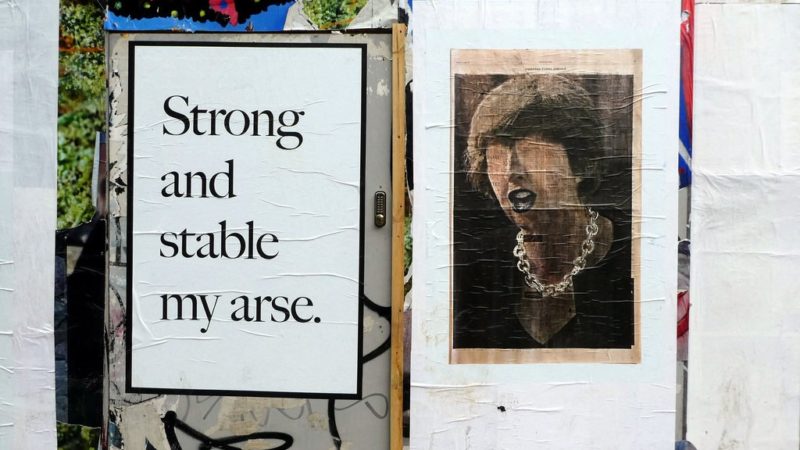The Tories' 2017 election mantra just received another kicking.

When George Osborne set up the Office for Budget Responsibility in 2010, he hoped it would steer the economic debate in favour of low spending.
But there would have been part of him which also knew it would be a respected critic of his successors: both Labour and Conservative.
So, he must be pleased this week. Because the former Chancellor – who said he wouldn’t rest until Theresa May was ‘chopped up in bags in my freezer’ – will have seen the head of the OBR’s interview with the New Statesman‘s George Eaton.
In a surprisingly outspoken intervention, Robert Chote – the former Director of the Institute for Fiscal Studies and current OBR boss – has just ripped to shreds the Conservatives’ 2017 election mantra:
“weak and stable, rather than strong and stable…
“Though GDP has continued to grow, it has fared poorly “by the standard of past recoveries…
“There’s an even chance of a recession in any five-year period, if you look back at the historical experience. We’ve not abolished boom and bust”.
Chote also appears to back increasing infrastructure spending to boost growth – after huge cuts to capital spending under the Tories:
“Infrastructure spending has the largest direct effect [on growth]. That’s basically because less of the spending leaks out into savings or imports…
“There is some room for fiscal giveaway that would still be consistent with [the current fiscal] targets”.
Responding to the interview, Shadow Chancellor John McDonnell, said:
“This is an extremely damning indictment of the last seven years of Tory economic policy from one of the most senior economists in the country.”
We wonder what George Osborne is saying…
Josiah Mortimer is Editor of Left Foot Forward. Follow him on Twitter.
Read the interview here.
Left Foot Forward doesn't have the backing of big business or billionaires. We rely on the kind and generous support of ordinary people like you.
You can support hard-hitting journalism that holds the right to account, provides a forum for debate among progressives, and covers the stories the rest of the media ignore. Donate today.




One Response to “Head of government’s financial watchdog issues stinging rebuke of its economic plan”
patrick newman
Austerity will be seen in an historical reflection as the most destructive economic policy in the 21st century. It has put this country back decades and worse is accumulating more and more problems that will last well into the next decade.